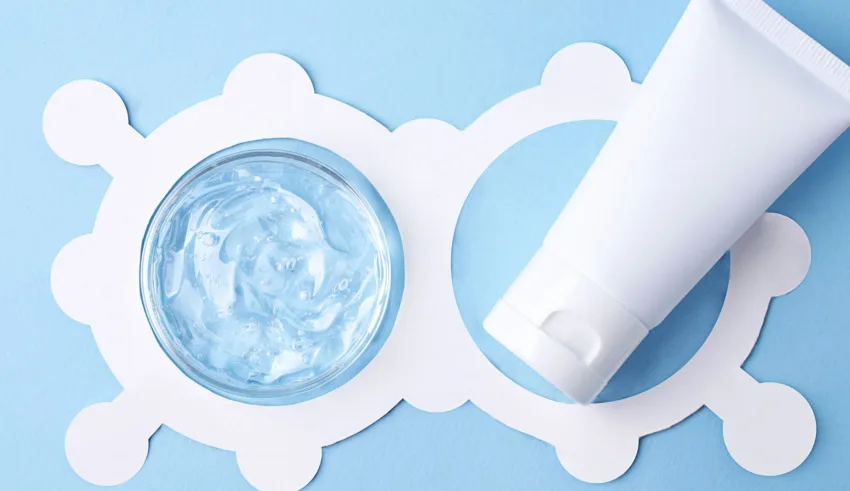
Beautiful and healthy skin is something we all desire, but achieving it can be a daunting task, especially with the plethora of skincare products available in the market. However, understanding the science behind the ingredients in skincare products can help you make informed choices and transform your skin like never before. From antioxidants and retinoids to AHAs and BHAs, each ingredient works uniquely to target specific skin concerns and promote a healthy, radiant complexion. In this article and in collaboration with the dermatologist Dr. Irena Ivanovska, we will explore the fascinating world of skincare ingredients and how they work to transform your skin.
First, how can you determine if a skin care product is effective?
According to Dr. Irena Ivanovska, the skin care product is effective when these conditions are improved or cured:
- You have an even and regular complexion.
- You have less acne.
- Your skin is smooth to the touch.
- Your skin is moisturized.
- Your skin is less itchy.
- Your skin heals faster.
However, before buying a product, you should know your skin type (normal, dry, combination, oily) and introduce one product at a time. This way, you will be able to see what each product does for the skin. Dr. Irena Ivanovska adds that patch tests are a good way to see if your skin reacts negatively to certain products, especially if you have sensitive skin.
What are the ingredients to look for in skin care products?
1- Antioxidants
Antioxidants are compounds that protect your skin from damage caused by free radicals, which are unstable molecules that can harm your skin’s cells. Free radicals are formed due to environmental factors such as pollution, UV radiation, and smoking. Antioxidants work by neutralizing these free radicals and preventing them from causing damage to your skin.
Some of the most popular antioxidants used in skincare products include vitamin C, vitamin E, and green tea extract. Vitamin C is a powerful antioxidant that helps brighten your skin, reduce the appearance of fine lines and wrinkles, and improve skin texture. Vitamin E is another potent antioxidant that helps to protect your skin from sun damage and prevent premature aging. Green tea extract is also an excellent antioxidant that helps to reduce inflammation and redness, making it perfect for those with sensitive skin.
2- Retinoids
Retinoids are derivatives of vitamin A and are known for their anti-aging benefits. They work by increasing cell turnover, which helps to reduce the appearance of fine lines and wrinkles and improve skin texture. Retinoids also help to stimulate collagen production, which is essential for maintaining firm and youthful-looking skin.
Some of the most common retinoids in skincare products include retinol, retinaldehyde, and tretinoin. Retinol is the most commonly used retinoid in skincare ingredients and is available over the counter. It is a milder form of retinoid that is suitable for most skin types. Retinaldehyde is a stronger form of retinoid that is available in prescription-strength products. Tretinoin is the strongest form of retinoid and is available only by prescription.
3- AHAs and BHAs
AHAs (alpha-hydroxy acids) and BHAs (beta-hydroxy acids) are chemical exfoliants that work by breaking down the bonds between dead skin cells, allowing them to be easily sloughed off. AHAs are water-soluble and work on the surface of the skin, while BHAs are oil-soluble and can penetrate deep into the pores.
AHAs are excellent skincare ingredients for brightening your complexion and improving skin texture, while BHAs are perfect for those with oily or acne-prone skin, as they help to unclog pores and reduce inflammation. Some of the most common AHAs used in skincare products include glycolic acid and lactic acid, while salicylic acid is the most commonly used BHA.
4- Peptides
Peptides are short chains of amino acids that help to stimulate collagen production, which is essential for maintaining firm and youthful-looking skin. They also help to improve skin elasticity and reduce the appearance of fine lines and wrinkles.
Some of the most common peptides used in skincare products include palmitoyl pentapeptide-4 and copper peptides. Palmitoyl pentapeptide-4 is a potent peptide that has been shown to stimulate collagen production and improve skin texture. Copper peptides are also excellent skincare ingredients for promoting collagen production and are known for their wound-healing properties.
5- Hyaluronic acid
Hyaluronic acid is a naturally occurring substance in your body that helps to keep your skin hydrated and plump. It is a humectant, which means it can attract and hold onto moisture in your skin. With age, your natural production of hyaluronic acid decreases, which can lead to dry and dehydrated skin.
Skincare products containing hyaluronic acid help to replenish the skin’s moisture levels and improve its overall hydration. It also helps to improve skin elasticity, reduce the appearance of fine lines and wrinkles, and improve skin texture.
6- Niacinamide
Niacinamide is a form of vitamin B3 that has become increasingly popular in skincare products due to its numerous benefits for the skin. It helps to improve the skin’s barrier function, which is essential for maintaining healthy skin. It also helps to regulate oil production, making it ideal for those with oily or acne-prone skin.
In addition, niacinamide has been shown to reduce the appearance of fine lines and wrinkles, improve skin texture, and reduce inflammation. It also helps to brighten your skin and reduce the appearance of dark spots and hyperpigmentation.
7- Ceramides
Ceramides are naturally occurring lipids (fats) that are found in the outer layer of the skin. They help to form a protective barrier that helps to prevent moisture loss and keep your skin hydrated. With age, your natural production of ceramides decreases, which can lead to dry and dehydrated skin.
Skincare products containing ceramides help to replenish the skin’s natural lipid barrier, improving its overall hydration and preventing moisture loss. It also helps to improve skin texture and reduce the appearance of fine lines and wrinkles.
What ingredients should be avoided in skincare products?
Dr. Irena Ivanovska says the following ingredients should be avoided:
- Parabens
Dr. Irena Ivanovska notes that they have been linked to cancer and hormone disruption. Parabens can also sensitize the skin and cause allergic reactions.
- Phthalates
Dr. Irena Ivanovska notes that they have been associated with birth defects and hormone disruption and are under FDA scrutiny.
- Formaldehyde
Formaldehyde is closely linked to asthma, neurotoxicity, cancer, and developmental toxicity.
- Fragrance/Perfume
- Mineral oil
- Aluminum
Dr. Irena Ivanovska indicates that some studies show that people exposed to high levels of aluminum can develop Alzheimer’s disease.
- PEG compounds
They are strongly linked to immune system impairment, uncontrolled cell growth, and developmental and reproductive toxicity.
Conclusion
Understanding the science behind the ingredients in skincare products can help you make informed choices and transform your skin like never before. From antioxidants and retinoids to AHAs and BHAs, each ingredient works uniquely to target specific skin concerns and promote a healthy, radiant complexion. Incorporating these ingredients into your skincare routine can help to improve skin texture, reduce the appearance of fine lines and wrinkles, and improve overall skin health.









